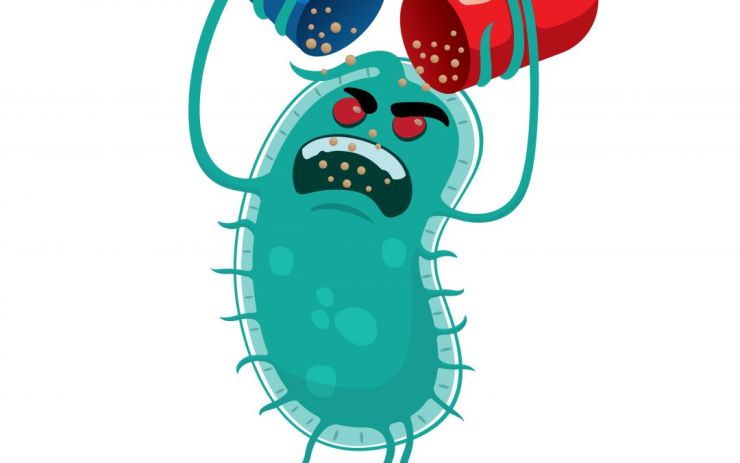
Why You Don’t Need Antibiotics for a Viral Illness
The COVID-19 pandemic has put viruses on everyone’s mind. While that is understandable, there are some common misperceptions about viral illnesses that are worth addressing. The biggest one is related to antibiotics.
Many people believe that antibiotics are some form of “miracle” drug that can cure any illness. This is not only false, but it is also a dangerous myth.
Antibiotics aren’t effective against viral illnesses because they are only designed to fight bacterial infections. When they are prescribed inappropriately, antibiotics can lead to problems like drug resistance and unwanted side effects.
With that in mind, let’s look at when you might need antibiotics as well as a more detailed explanation of why they don’t work against viruses.
When Do I Need Antibiotics?
Quite simply, you only need antibiotics when you are battling a bacterial infection. Some very common illnesses are caused by bacteria. Things like sinus infections, bronchitis, and ear infections are often the result of bacteria multiplying where they shouldn’t. Other types of bacterial infections include certain types of pneumonia, meningitis, and staph infections.
With these conditions, antibiotics are a helpful treatment since they eliminate the cause of the illness. Most people start to feel better within a few days of taking them and have reduced symptoms.
However, not all illnesses are caused by bacteria. Conditions like the common cold, the flu, and COVID-19 are all caused by viruses. Likewise, the majority of sore throats are viral in nature. When you’re dealing with one of these illnesses, antibiotics won’t help.
Why Don’t Antibiotics Help Against a Virus?
It might seem confusing why antibiotics work against some infections but not all of them. The reason is related to the way that antibiotics work in the human body.
Despite the fact that they are tiny, bacteria are actually living organisms. They have all of the functions necessary to support life on their own—at least for a short period of time. Antibiotics are designed to disrupt those functions in one way or another. This kills the bacteria and helps improve your symptoms in the process.
Although viruses can also make you sick, they aren’t living organisms. A virus relies on a host organism in order to reproduce. This means it is much harder to disrupt the virus since it can latch onto almost any type of cell.
When someone who is sick with a viral infection takes an antibiotic, it doesn’t do anything to help the problem. Instead, the medication attacks the good bacteria that are living in the body.
What Happens if You Use Antibiotics When You Don’t Need Them?
In some cases, it is difficult to determine if an infection is being caused by a virus or bacteria. This means that people can end up taking antibiotics when they aren’t needed.
Fortunately, the negative consequences of doing so are relatively mild for that individual. As mentioned, antibiotics also target the good bacteria living in the gut. Taking them when it is unnecessary can damage the body’s natural biome and lead to unpleasant side effects like nausea, diarrhea, and stomach cramps.
However, the bigger problem is what happens later. When antibiotics are taken for a viral illness, it allows bacteria to build up resistance against the medication. This means antibiotics won’t be as effective when they are needed to fight a more serious infection down the road.
On top of this, widespread antibiotic misuse can lead to “superbugs”—strains of bacteria that are resistant to multiple types of antibiotics. These can cause very serious infections that kill tens of thousands of people each year.
As such, it is very important to only take antibiotics as needed.
Velocity Urgent Care is Here to Help
No matter what type of illness you’re dealing with, Velocity Urgent Care is ready to help. Our team of friendly, board-certified providers will perform an exam and ask questions to figure out what is causing your illness. Then, we can determine the best treatment plan to get you back on your feet.
Our providers can prescribe medications on-site, saving you a trip to your primary care doctor. If you’re dealing with a bacterial illness, we’ll make sure you get an effective dose of antibiotics. If your illness is viral in nature, we’ll provide other treatments to help manage your symptoms. If your symptoms reflect those of COVID-19, our facilities are also equipped for testing.
In light of the COVID-19 pandemic, we are taking serious safety precautions to ensure that our locations are as clean as possible. We’ve put strict sterilization protocols into place and are carefully handling patients who may be contagious to ensure that each one of our clinics is safe for those who need urgent medical care or testing.
Don’t put your health at risk by waiting to seek out treatment!
Velocity Urgent Care offers convenient online registration that helps you limit your contact with others during a visit. You can sign up for an appointment online ahead of time and arrive when it’s time to be seen to skip the waiting room. We even offer text message updates so you can wait in the car (if you prefer) until it’s time for your appointment.
Velocity Urgent Care is an in-network provider for most major insurance plans, meaning you can be seen for the cost of your co-pay and deductible. All of our locations also accept Medicare, Medicaid, and Tricare. Veterans Administration beneficiaries are also welcome.
Loading Conversation
